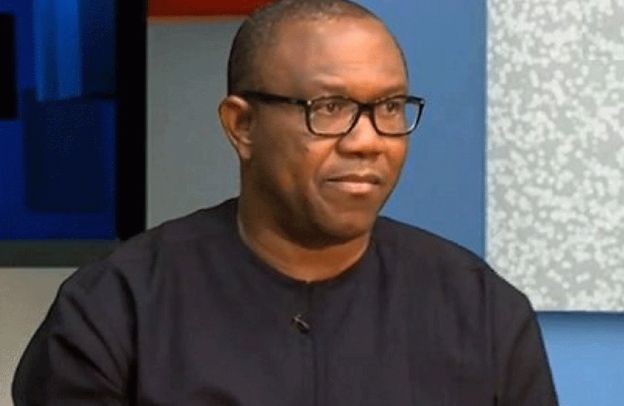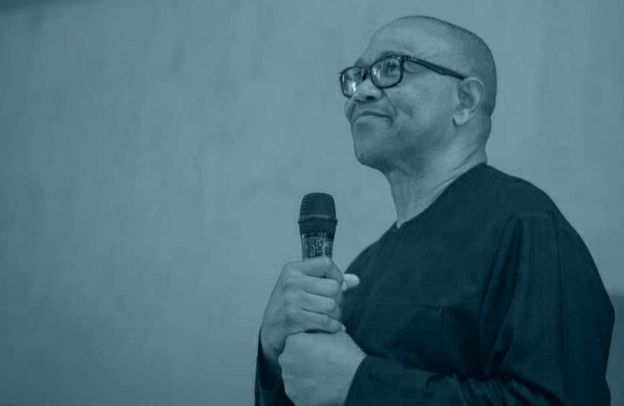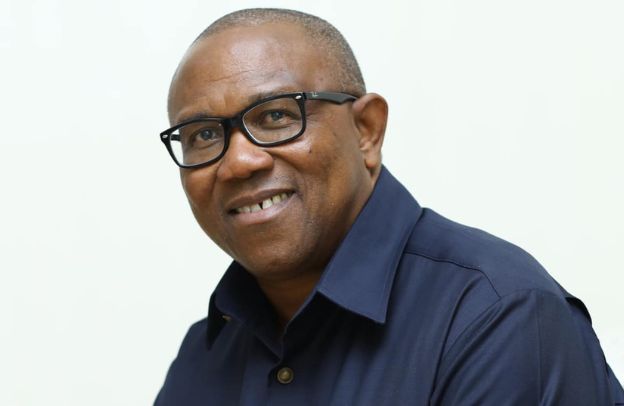Challenges Facing Nigeria’s Education System And Peter Obi’s Plans To Improve It

The Nigerian education system has deteriorated significantly over the past two decades, leading to the collapse of the sector. This decline has been caused by numerous problems, resulting in a significant brain drain as many Nigerians seek education opportunities abroad in Europe, America, and even Africa. This is a continuation of our article series – “Peter Obi and The Audacity of Hope.”
Want to learn more about storytelling? Start by downloading the first chapter of The Storytelling Series for Small Businesses.
Although these individuals excel in their studies in foreign countries, their performance falls short when they return to Nigeria. This situation points to underlying root problems that need to be addressed. It’s important to note that the decline in the educational sector has also had a detrimental impact on the Nigerian economy.
1. Bad Governance in Nigeria
For years, Nigeria has grappled with a pervasive issue of governance marred by counterfeit educational credentials. When individuals with fraudulent qualifications assume positions of power, it is hardly surprising that the education sector receives scant attention. Regrettably, this is the grim reality of present-day Nigeria.
The recent government, characterized by individuals who ascended to power on the back of falsified qualifications, has made minimal efforts to rescue Nigeria’s crumbling education system from the brink of collapse. Consequently, this has resulted in a recurring cycle of strikes by the Academic Staff Union Of Universities (ASUU), extending the duration of students’ academic journeys.
To safeguard Nigeria’s fragile education system from impending catastrophe, the election of leaders who show little regard for education must be halted. Effective measures must be taken to root out poor governance, replacing it with capable leaders who prioritize the welfare and advancement of the education sector.
2. Inadequate Funding in Nigeria’s educational sector
Nigeria’s educational sector has been grappling with a chronic lack of funding for an extended period, and regrettably, there have been minimal efforts to rectify this situation. Ideally, the United Nations recommends that a substantial 26% of a nation’s budget should be earmarked for the educational sector.
This allocation is intended to ensure the availability of sufficient funds to meet the sector’s essential needs and drive much-needed improvements. Unfortunately, Nigeria has consistently fallen short of this UN recommendation for several decades.
In 2018, the government allocated a mere 7.04% of its 8.6 trillion Naira budget to education. Fast forward to 2023, and the situation hasn’t seen a significant improvement, with the government setting aside just 8.8% of its massive 20.5 trillion Naira budget, which amounts to 1.79 trillion Naira for education. This paltry increase underscores the alarming lack of attention given to Nigeria’s educational system.
Compounding this problem is the distressing reality that the funds that should rightfully be allocated to the education sector are often diverted by politicians, leaving the system hanging by a thread, struggling for survival.
3. Corruption in the Nigeria economy
Corruption is a tide that has frazzled all sectors of Nigeria’s economy and nothing tangible has been done to stem the dreadful tide. Therefore, Nigeria’s educational system is not sieved out from this. The public and private universities, secondary schools and primary schools are all wracked by corruption.
The available funds which are ought to be invested for the improvement of education – building classrooms, providing laboratory equipment, school buses, etc., are all pocketed by various individuals in charge of these schools.
Examination malpractices are now common among students, killing the spirit of voracious reading. The lecturers and professors equally dabble in these corrupt practices as they charge students a specific amount of money that should be paid before awarding them scores or is it sex? Sadly, these lecturers downright offer female students sex in exchange for good results.
This corrupt practice provides no less incompetent human resources that would have added meaning to society.
4. Outdated Curriculum and Subjects
Unfortunately, Nigeria’s education system still sails an outdated Curriculum that does not brand students with knowledge about technology (the most essential thing in the 21st century)
In Nigerian universities, you’ll see courses that should be replaced, sadly, the lecturers that even handle these courses are too old to resharpen their knowledge with updated information regarding technology or things of the 21st century. This is the sole reason Nigeria remains an underdeveloped country.
5. Lack Of infrastructure vocational institutions
In recent years, schools and vocational institutions have suffered significant neglect from governments, resulting in their collapse. This disregard has also affected our tertiary institutions, which have fallen into disrepair. Consequently, graduates from these institutions lack the necessary training to compete effectively on an international level.
A critical issue is the lack of basic equipment in many schools, particularly for science practical classes. Even those institutions claiming to have equipment often rely on outdated resources. As a result, students are restricted to learning theoretical concepts without the opportunity to engage in hands-on practical learning.
Additionally, school libraries are deficient in essential books, journals, and magazines, further hindering students’ access to necessary educational resources.
Peter Obi’s Efforts To Improve Access To Quality Education For All.
Having considered that education is the foundation of all societies, Peter Obi listed ways he intended to skyrocket the dwindling educational system of Nigeria. He openly admitted to Nigerians in Canada during an indoor meeting and to Nigerians at home that he’ll never “play with education” once elected the president of the country.
His record of handing back most schools in Anambra state to the initial owners remarkably improved the system of education in the state which was why Anambra ranked one of the best states for schooling in Nigeria.
He asserted that education is the best form of human capital development, thus the essence of investment in education during his reign.
“We will invest in education. The more educated your country is, the better your development. We will invest in Health. And most importantly we must put money to bring people out of poverty. The more you put people out of poverty, the more you reduce criminality,” he said.
Obi also made assurances of ending ASUU strike action which had plagued the education system throughout Muhammadu Buhari’s regime.
“It is a disaster. I don’t know how anyone can comprehend it. This was based on the agreement reached by ASUU in 2009. But I will do things differently. I will sit down with ASUU and tell them how we can create a new source of revenue for universities. We cannot play with Education. I have told the Federal government of Nigeria to please pay all outstanding gratuities, pensions, and agreements and negotiate the ones for the future,” he said.
In that same regard, Obi equally assured that his tenure will be marked by a resounding end to the vast unemployment of Nigerian youths. During a rally held at Abuja in February 2023, some days before the election day, Obi said.
“Nigerian youths, young people in Nigeria don’t know where the next meal will come. We have a high level of youth unemployment, we would employ our youth, and we would make them productive. We have vast land in the north where our youth will be engaged, and they will be productive. Nigeria will feed itself; Nigeria will be a great nation again.”
Obi maintained that by lifting Nigerian youths from poverty and engaging their skills in production crime rate and insecurity will be a thing of the past.
Conclusion on the Challenges Facing Nigeria’s Education System And Peter Obi’s Plans To Improve It
The myriad of challenges that befall Nigeria’s educational system can be curbed by taking the necessary steps to end corruption, increasing the funds for schools, advancing school curriculum, employing young minds that are well versed in the things of the 21st century, etc. When all these seeming solutions are applied, this near-death education sector of Nigeria will greatly improve.
Want to learn more about storytelling? Start by downloading the first chapter of The Storytelling Series for Small Businesses.





